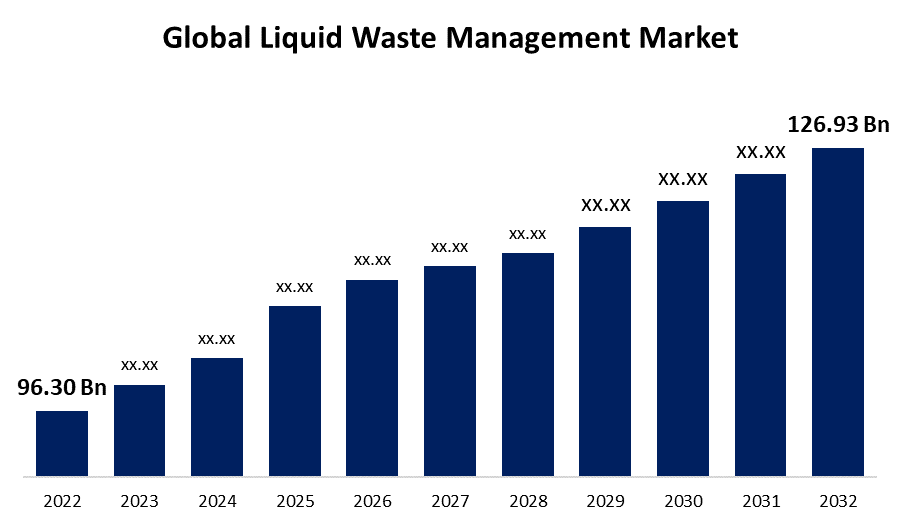Comprehending the Comprehensive Refine of Liquid Garbage Disposal: Ideal Practices and Environmental Influence Factors To Consider
The monitoring of liquid waste disposal is a multifaceted concern that calls for a complete understanding of different ideal methods and their linked environmental influences. From the types of liquid waste created to the techniques employed for collection, therapy, and last disposal, each action plays an essential function in guarding ecological communities and public wellness.
Types of Fluid Waste
Understanding the various sorts of liquid waste is necessary for effective monitoring and disposal practices. Liquid waste can be broadly classified right into numerous types, each calling for unique handling and treatment techniques.
Industrial fluid waste often has dangerous products, consisting of hefty steels, solvents, and chemicals, produced during producing processes. These wastes necessitate stringent regulatory compliance to shield human health and the environment. Residential fluid waste mostly refers to wastewater generated from homes, including sewer and greywater, which, although much less harmful, can still posture significant dangers if poorly managed.
Agricultural liquid waste, including runoff from ranches, often contains plant foods and pesticides that can cause ecological destruction otherwise dealt with appropriately. Clinical liquid waste, generated from medical care facilities, includes contaminated fluids such as physical liquids and chemicals, requiring specialized disposal techniques to avoid infection and environmental contamination.
Last but not least, oil and grease waste, commonly created by dining establishments and auto sectors, can trigger severe clogs in sewer systems if not handled correctly. Recognizing these categories facilitates targeted techniques for therapy, conformity with guidelines, and reliable disposal techniques, eventually promoting ecological sustainability and public health and wellness security.

Collection Approaches
Efficient collection techniques are vital for the appropriate management of liquid waste, making certain that it is collected safely and efficiently prior to treatment or disposal. Different techniques are used relying on the sort of liquid waste produced, the volume, and the certain attributes of the waste.
One typical method is using dedicated collection containers or sumps, which are designed to catch fluid waste at the resource. These systems frequently incorporate pumps that help with the transfer of waste to bigger storage containers or treatment centers. Additionally, mobile collection devices furnished with vacuum cleaner innovation are used in scenarios where waste is generated periodically or in hard-to-reach areas.
For commercial setups, closed-loop systems can efficiently minimize spills and leakages, enabling the healing and reuse of liquid waste. It is also crucial to educate personnel on correct collection methods to mitigate dangers connected with hazardous compounds.
Moreover, executing normal upkeep timetables for collection tools ensures optimum efficiency and safety and security. The assimilation of advanced monitoring systems can enhance collection effectiveness by supplying real-time information on waste levels and potential threats. Overall, effective collection approaches are foundational to sustainable fluid waste monitoring practices.
Therapy Procedures
Therapy procedures play an important role in the monitoring of liquid waste, transforming potentially harmful products into safe effluents or reusable resources - liquid waste disposal. These procedures can be broadly categorized right into physical, chemical, and biological techniques, each tailored to address particular pollutants existing in the waste stream
Physical therapy techniques, such as sedimentation and filtration, job by eliminating put on hold solids and particulate matter. These methods are often the very first step in the therapy chain, successfully reducing the lots on succeeding procedures. Chemical therapies involve the usage of reagents to neutralize damaging substances, precipitate hefty steels, or oxidize natural contaminants, thereby enhancing the safety of the effluent.
Organic therapy processes, including triggered sludge systems and anaerobic digestion, maximize the all-natural capacities of bacteria to degrade organic issue. These approaches are specifically reliable for wastewater having biodegradable contaminants. Advanced treatment modern technologies, such as membrane filtration and advanced oxidation procedures, are significantly used to achieve greater levels of filtration.
Integrating a combination of these treatment techniques not only ensures conformity with regulative requirements but additionally promotes ecological sustainability by recuperating important resources from liquid waste.
Disposal Options
Exactly how can companies make sure the liable and safe disposal of fluid waste? Efficient disposal options are critical for protecting public health and wellness and the setting. The primary methods consist of land therapy, disposal, and incineration adhered to by discharge right into municipal wastewater systems.
Land disposal includes the mindful containment of fluid waste in assigned land fills, making certain that it does not leach into bordering soil or water. Incineration, on the various other hand, subjects fluid waste to heats, Extra resources transforming it right into ash and gases, which require appropriate purification to decrease emissions. This technique is appropriate for dangerous wastes that can not be dealt with with standard ways.
In cases where fluid waste can be treated, companies might select chemical or organic treatment processes to counteract unsafe elements before discharging the treated effluent right into metropolitan systems. This course generally lines up with governing demands, guaranteeing that the effluent meets safety criteria.
Inevitably, companies must perform detailed assessments of each disposal option to determine its viability, considering variables such as waste structure, regulative conformity, and potential risks to health and wellness and the environment. By choosing ideal disposal approaches, businesses can add to a liable waste administration approach.
Environmental Effect
The environmental effect of liquid waste disposal is a vital factor to consider for companies looking for to lessen their environmental footprint. In addition, the discharge of unattended or improperly dealt with waste right into surface area waters can result in eutrophication, leading to oxygen deficiency and the subsequent death of fish and other microorganisms.

To alleviate these influences, companies have to take on ideal techniques such as implementing rigorous waste therapy procedures, promoting recycling and reuse, and adhering to governing criteria. By taking an aggressive technique to liquid waste administration, entities can dramatically decrease their environmental footprint while sustaining sustainable growth goals. Inevitably, a comprehensive understanding of the ecological effects connected with liquid waste disposal is vital for informed decision-making and responsible stewardship of natural deposits.
Final Thought
Efficient monitoring of liquid waste is important for protecting ecological honesty and public health and wellness. By adopting best practices in collection, therapy, and disposal, together with adherence to regulative standards, the possibility for damaging contamination of ecological communities can be substantially minimized. Continuous developments in technology and processes contribute to sustainable waste administration initiatives. Eventually, an extensive understanding of fluid garbage disposal not only mitigates ecological effects but also cultivates a dedication to liable resource monitoring and environmental stewardship.
The management of liquid waste disposal her comment is here is a multifaceted concern that check my source requires a detailed understanding of various finest practices and their associated ecological influences. From the kinds of liquid waste created to the techniques utilized for collection, therapy, and last disposal, each step plays a crucial function in protecting communities and public wellness.The environmental effect of fluid waste disposal is a vital factor to consider for organizations looking for to minimize their ecological impact. Eventually, a detailed understanding of the environmental influences connected with liquid waste disposal is essential for educated decision-making and responsible stewardship of natural sources.
Ultimately, a thorough understanding of fluid waste disposal not just minimizes ecological effects yet additionally cultivates a commitment to responsible source management and environmental stewardship.